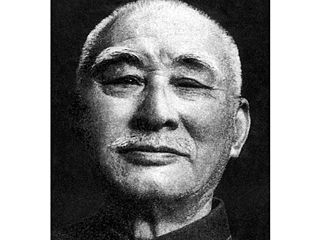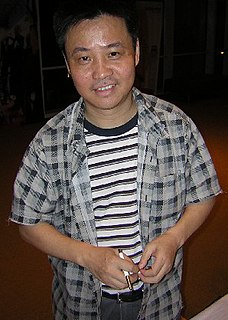 W
WBi Feiyu is a Chinese writer. His works are known for their complex portrayal of the "female psyche." He has won some of the highest literary awards in China. He also wrote the screenplay for Zhang Yimou's 1996 film Shanghai Triad.
 W
WCao Wenxuan is a Chinese novelist, best known for his works of children's literature. Cao is the vice president of Beijing Writers Association. He is also a professor and doctoral tutor at Peking University. His novels have been translated into English, Dutch, French, German, Italian, Japanese, Korean, and Serbian.
 W
WChang Ping, whose real name is Zhang Ping, is a Chinese writer and journalist, one of China's best-known commentators on contemporary affairs. He won the Human Rights Press Awards in Hong Kong in 2014 and the CJFE 2016 International Press Freedom Award in Canada.
 W
WChen Maiping is a Chinese-Swedish writer and poet, known by the pen name Wan Zhi (万之). He has written mostly short stories, and has also translated literature from English and Swedish to Chinese.
 W
WWang Lin-du, better known by his pen name Chiang Kuei, was a Chinese novelist active in Taiwan.
 W
WFeng Zhi was a Chinese writer and translator. He was also the director and then honorary director of the Institute of Foreign Literature, Chinese Academy of Social Sciences since 1964.
 W
WHan Shaogong is a Chinese novelist and fiction writer.
 W
WYu-chien Kuan or Guan Yuqian was a Chinese-born German sinologist, writer and translator. The son of a high-ranking Chinese Communist Party official, he was denounced as a "rightist" and persecuted during the Anti-Rightist Campaign and the Cultural Revolution. This drove him to escape from China using a Japanese passport stolen from his workplace. He landed in Egypt and spent a year and half in prison for illegal entry, before being admitted to West Germany in 1969 as a political refugee.
 W
WJidi Majia is Chinese poet and a lieutenant governor of Qinghai from 2006 to 2010. He was born in 1961 and belongs to an ethnic minority of China, the Yi. He has published numerous poetic anthologies since the 1980s and has won national literature awards, is also considered one of the greatest poets of minorities in China. He is the President of the China Minority Literary Association and Permanent Vice-President of the China Poets' Association.
 W
WMu Shiying was a Chinese writer who is best known for his modernist short stories. He was active in Shanghai in the 1930s where he contributed to journals like Les Contemporains, edited by Shi Zhecun.
 W
WQu Bo was a Chinese novelist. His name was also translated as Chu Po. Qǔ (曲), the family name, has meanings of curve, melody and tune. Bō (波) stands for ripples and waves. His first book Tracks in the Snowy Forest (林海雪原) made him one of the most popular authors at the time.
 W
WWen Yiduo was a Chinese poet and scholar known for his nationalistic poetry who was assassinated by the Kuomintang.
 W
WYan Lianke is a Chinese writer of novels and short stories, based in Beijing. His work is highly satirical, which has resulted in some of his most renowned works being banned in China. He has admitted to self-censorship while writing his stories in order to avoid censorship.
 W
WYao Xueyin was a Chinese novelist who was a member of China Writers Association. Yao was a member of the 5th, 6th, and 7th National Committee of the Chinese People's Political Consultative Conference. Yao used his fortune posthumously to institute the Yao Xueyin Historical Novel Prize (姚雪垠长篇历史小说奖).
 W
WYe Shengtao was a Chinese writer, journalist, educator, publisher and politician. He was a founder of the Association for Literary Studies (文學研究會), the first literature association during the May Fourth Movement in China. He served as the Vice-Minister of Culture of the People's Republic of China.
 W
WYe Yonglie was a Chinese writer of science fiction and biographies. A few of his stories have been translated into English in The Road to Science Fiction series and elsewhere. During the "Anti-Spiritual Pollution Campaign" his works were attacked and a story he wrote in 1985 was suppressed for suggesting AIDS had entered the country. As a biographer he wrote on early figures in the People's Republic of China. He also visited North Korea, and wrote a book The Real DPRK (真实的朝鲜) which was banned in that country and China.
 W
WYu Hua is a Chinese author, born April 3, 1960 in Hangzhou, Zhejiang province. Shortly after his debut as a fiction writer in 1983, Yu Hua was regarded as a promising avant-garde or post-New Wave writer. Many critics also regard him as a champion for Chinese meta-fictional or postmodernist writing. His novels To Live (1993) and Chronicle of a Blood Merchant (1995) were widely acclaimed. When he experimented with more chaotic themes like in Brothers (2005–06), Yu Hua received criticism from critics and readers.
 W
WZhang Henshui was the pen name of Zhang Xinyuan (张心远), a popular and prolific Chinese novelist. He published more than 100 novels in his 50 years of fiction writing.
 W
WZhou Ruchang, was a Chinese writer noted for his study of the novel Dream of the Red Chamber by Cao Xueqin. He is regarded as among the most renowned and influential redologists of the 20th century. In addition, Zhou was also an accomplished calligrapher and expert on traditional Chinese poetry and fiction.